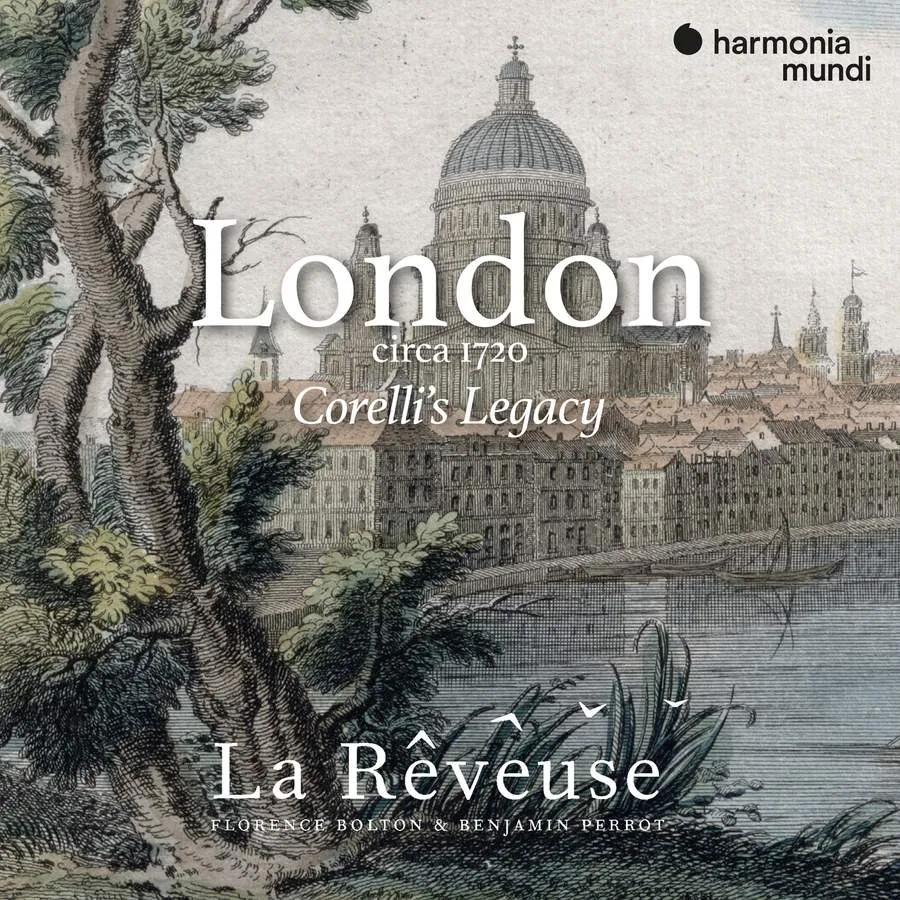
London circa 1720 – Corelli's Legacy Babell: Concerto No. 2 for Sixth Flute in D major, Op. 3; Geminiani: Sonata No. 4 in D major, Op. 1; Handel: Concerto a quattro in D minor; Sonata in G minor, HWV 364b; Admeto – Spera si mio caro bene; Schickhardt: Concerto No. 2, Op. 19; Haym Pyyrhus and Demetrius – Thus with My Souls Expiring La Rêveuse/Benjamin Perrot and Florence Bolton Harmonia Mundi HMM905322 60:16 mins
London circa 1720 provides a conspectus of musical taste in Britain, with emphasis on Corelli’s influence during the first half of the 18th century. Advances in printing techniques, along with the impetus provided by amateur music societies, were among the chief propagators of Corelli’s music, spearheaded in Britain at least by his greatly admired Op. 5 violin sonatas.
La Rêveuse’s off the beaten track programme illustrates the Corellian spin on British taste. Perhaps the most immediately attractive item is a concerto for descant recorder, pitched in D major, by William Babell, included in the composer’s Op. 3, c1730. Sebastien Marq plays with refinement, affection and virtuosity, features which enhance every item in the programme. Controversially, perhaps, a Concerto a Quattro or more correctly a Sonata for two treble instruments, cello and continuo, has been included in the belief that Handel was its composer. That may be so, as is claimed by one of the surviving manuscripts, but my money is on Telemann, who is nowadays widely considered to be its author. It is a fine piece with an especially alluring opening Adagio. The G minor Sonata for viola da gamba and continuo on the other hand is genuine Handel, in which the composer suggested the instrument as an alternative to the violin. Pieces by Geminiani, the most important of the foreign settlers in Britain, apart from Handel himself, Corelli and Johann Christian Schickhardt, as both composer and arranger, contribute to a diverting and thoughtfully prepared programme.
Read more of our reviews of the latest Corelli recordings here
Nicholas Anderson